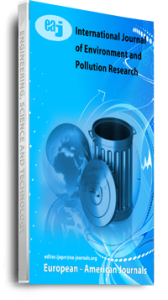Nanotechnology has myriads of potentials and windows of opportunities cutting across all sectors, but this paper concentrated on the application of nanotechnology in water purification and treatment as a means of improving water quality for effective water supply in Nigeria. The paper reviewed twenty-one manuscripts on the applications of nanotechnology in water treatment, its efficiency and major challenges including original research studies and reviews. It was found that nanotechnology has the potentials to advance and make easy the process of water purification effectively, with the merits of lower costs, energy saving, and relative limited negative environmental and health impacts. Some of the identified nanomaterials useful in water treatment and purification include: carbon nanotubes and alumina fibers for nanofiltration, carbon nanotube membranes for removal of almost all kinds of water contaminants including turbidity, oil, bacteria, viruses and organic contaminants; Zinc oxide nanoparticles for removing arsenic from water; nano titanium oxide used to degrade organic pollutants; zero-valent metal nanoparticles, metal oxides nanoparticles, and nanocomposites among others. The paper recommended that nanotechnology should be adopted in water purification and treatment in order to improve water quality and adequate water supply in Nigeria. Also, the departments of water resources planning and management should partner with available nanotechnology centres to improve the sector using this technology.
Citation: Onuoha, D. C. and Ogbo, O. G. (2022) Application of Nano-Technology in Water Purification and Treatment, Towards Improving Water Quality for Effective Water Supply in Nigeria, International Journal of Environment and Pollution Research, Vol.10, No.2 pp.19-33
Keywords: Nanotechnology, water purification and treatment, water quality and supply.

